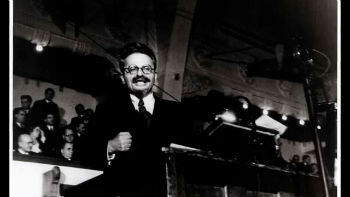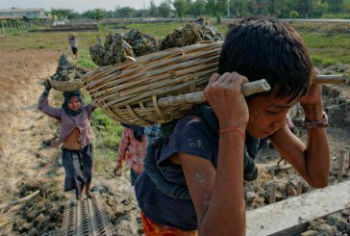Today, computers, cell phones, microwaves, flat-screen televisions, refrigerators, among many other devices electronics are part of our daily lives, to the point that we can no longer imagine our lives without the convenience they provide us. provide. However, until the middle of the end of the first half of the 20th century, this was not the reality of Brazilian society.
A rural population predominated in Brazil, dedicated to rural work and a simple life, with almost no technology available, with the exception of a few rare radio sets. Urban concentrations as we know them today had not yet been formed, because, although cities like São Paulo already existed, the industrialization process was still in its infancy. There were already many industries in São Paulo at the beginning of the last century, but the idea of economic strength, progress, production modernization, would only be reality in the mid-1950s, a fact that is evidenced by the installation of a large industrial park, mainly in the automobile industry in the ABC region São Paulo.
In the 50's we lived the governments of Getúlio Vargas (who killed himself in 1954) and Juscelino Kubitschek, who, in general lines, fostered the national industrialization process by import substitution (started by Vargas); by opening to foreign capital for investment; by strategic planning (as in the case of JK.); for the construction of infrastructure such as highways, hydroelectric plants, airports; for the promotion of basic industry and the production of capital goods, essential for national production. One of the greatest symbols of this modernization process was the construction of Brasília, the country's new capital, inaugurated in the early 1960s.
From the point of view of culture and social imagination, it was believed that Brazil was on the way to becoming a modern nation, mainly by adopting a standard of living that is at the same time very different from rural life and very close to the consumerist model of capitalism North American. In the daily lives of housewives, all sorts of "modern appliances" were present, such as a blender, mixer, gas stove, televisions, floor polishers, not to mention industrialized products such as food, beverages, toiletries and beauty etc. In addition, the means of communication such as cinema, television and radio were becoming more and more widespread, being fundamental in the dissemination of nationalist thinking and the ideology of a country towards the progress.
Do not stop now... There's more after the advertising ;)
All these economic transformations were obviously accompanied by many other social transformations. An example of this is the strong rural exodus process of that same population that was once concentrated in the countryside, which, in search of work, reached the large urban centers. This urbanization process would later generate, as we know, the swelling of cities, resulting in social problems that are still faced today by the State, such as lack of housing, social assistance (health and education), quality public transport, not to mention the levels of unemployment.
Despite this, it is undeniable that the 1950s were in fact a watershed for understanding our history, our society. The directions taken by the nation in this period not only differed from the past but would certainly reflect on the construction of the future.
Paulo Silvino Ribeiro
Brazil School Collaborator
Bachelor in Social Sciences from UNICAMP - State University of Campinas
Master in Sociology from UNESP - São Paulo State University "Júlio de Mesquita Filho"
Doctoral Student in Sociology at UNICAMP - State University of Campinas
Sociology - Brazil School



